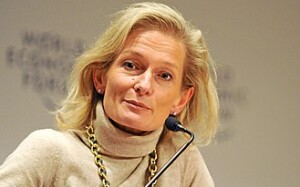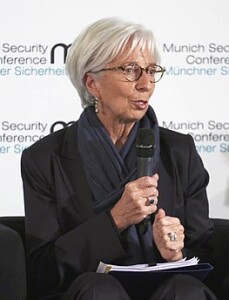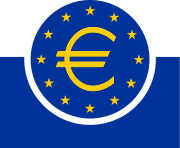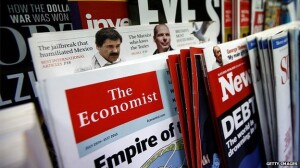As the covid-19 vaccines continue to be rolled out across the world, how can central banks best counteract the impact of the pandemic? Now might be a good time to pause and reflect on the economic response in Europe.
Zanny Minton Beddoes, the editor-in-chief of the magazine the Economist, sat down for an interview with Christine Lagarde, President of the European Central Bank (ECB) on February 10, 2021, to reflect on the challenges Europe faces as it tries to restart its economy while protecting the health of citizens.
Lagarde noted the ECB was praised for its quick response in the early days of the pandemic, but now, with the focus on vaccines, “it’s hardly surprising the rollout was not perfect.”
Currently it appears Europe is having a “slower, weaker recovery” than the U.S., Beddoes remarked.
Lagarde replied, “we have two layers.” Germany and Italy have both spent a lot during the pandemic, and on average, EU members have spent over 4 percent of GDP. “There are automatic stabilizers in Europe.”
“Beware the cliff-edge support,” she cautioned. “We must gradually remove the support we are giving, especially because there are other clouds on the horizon” such as new coronavirus variants.
“Pandemic European next-generation special funds will be spent in the first half of 2021,” she predicted, “and they will focus on green and digital” projects. Lagarde is actively encouraging member states to ratify this spending. “The pandemic is accelerating the process.”
“It is in every member state’s interest to move fast,” she said. “They all have skin in the game.”
The ECB sees the stimulus requires three things: “moving fast, leveraging funds, and transforming the economy.”
The Pandemic Emergency Purchase Program (PEPP) is a flexible instrument valued at $USD 1.8 trillion (€ 1.35 billion), of which $USD 0.8 trillion has already been used. It aims to lower borrowing costs and increase lending in the euro area. The PEPP was extended to cover an additional € 500 billion in December 2020.
Lagarde reminded the audience of the priorities of the ECB. “The direction we are heading is toward the inflation path we used to be on. Pre-pandemic, we were at 1.6 percent,” she said. “We are not worried about reflation at this time.”
“Our central mandate is price stability,” she said. “We have to make sure the economy has enough liquidity.”
The longer-term consequences of the pandemic could be severe, a widening of inequality. “There has been an acceleration of asset prices, but not wages.”
“The small retail stores that are the joy of our lives and the tourists’ interest… many of them will not survive.” Lagarde predicted that “the way we buy, pay, learn, take care of health and education will change.” Tele-medicine, e-learning and e-commerce have all been accelerated.
The second outcome of the pandemic will be connected to climate change. “People find out they can use planes less, they feel better with walking, and there’s more attention paid to nature.” She noted that a recent survey showed more than 60 percent of Europeans would like to work from home two or more days a week.
The negative economic side effects have fallen disproportionately on women. The service industries that have had to close down primarily employ women, and those most exposed to the virus in the health sector are women.
“This could represent a turning point in the social contract,” Beddoes observed and Lagarde agreed, “We must identify the universal common good” and not lose sight of that in the years to come. ♠️






